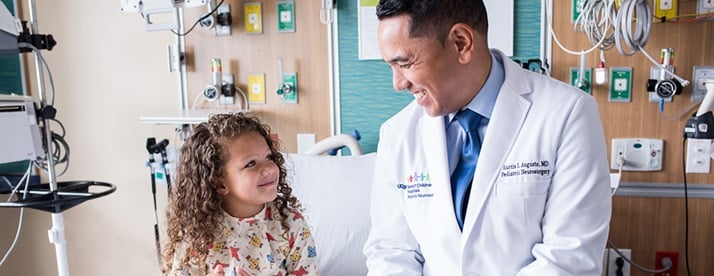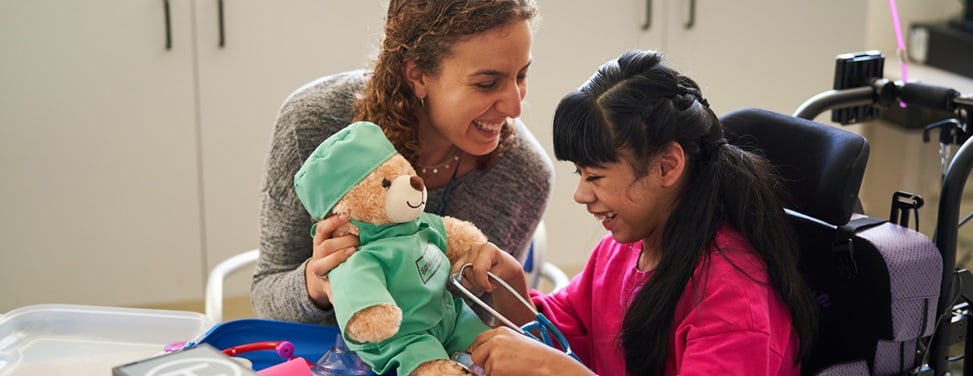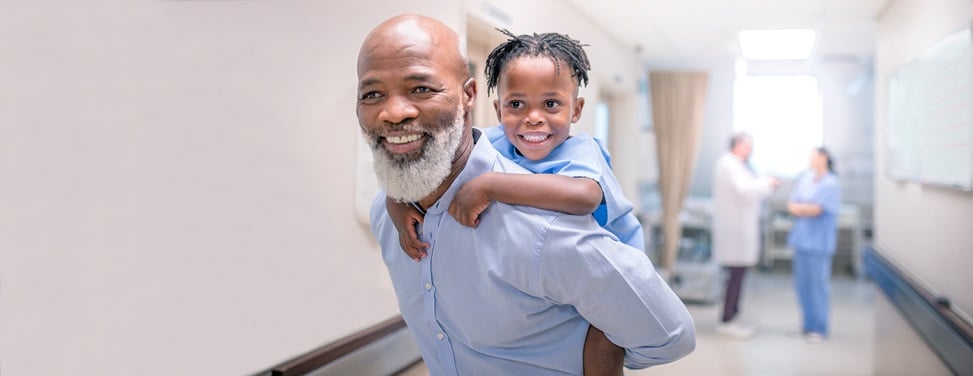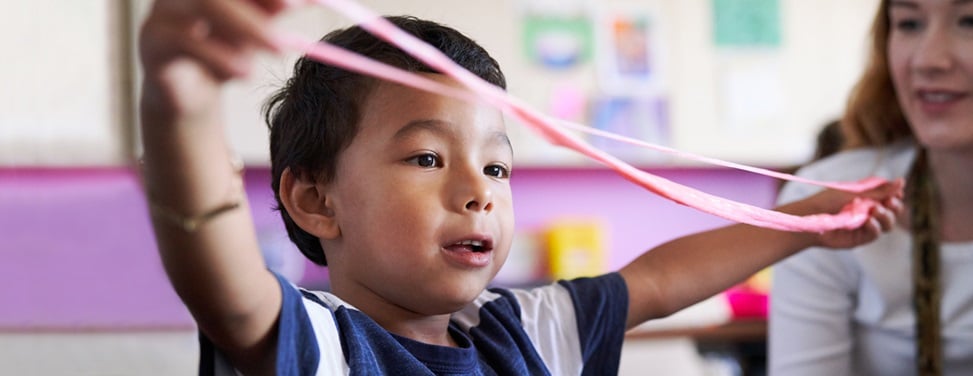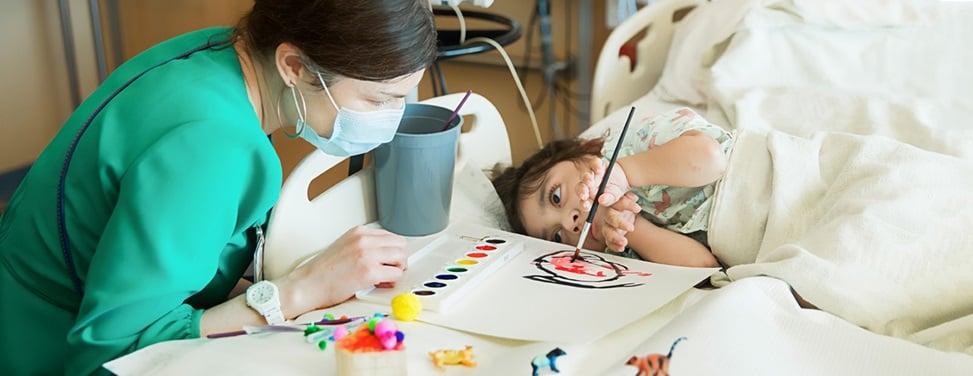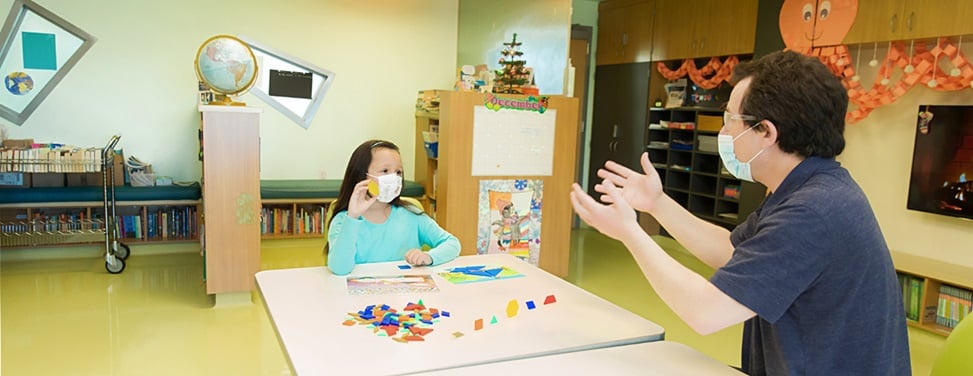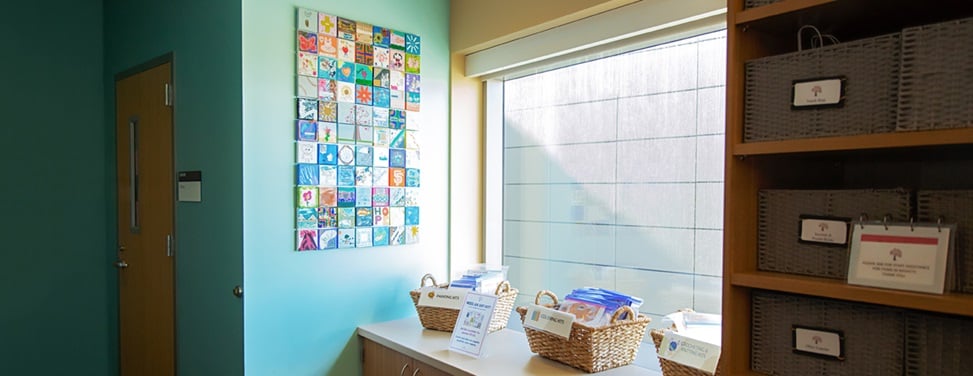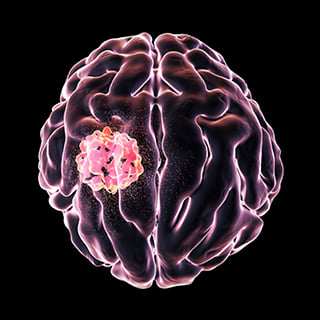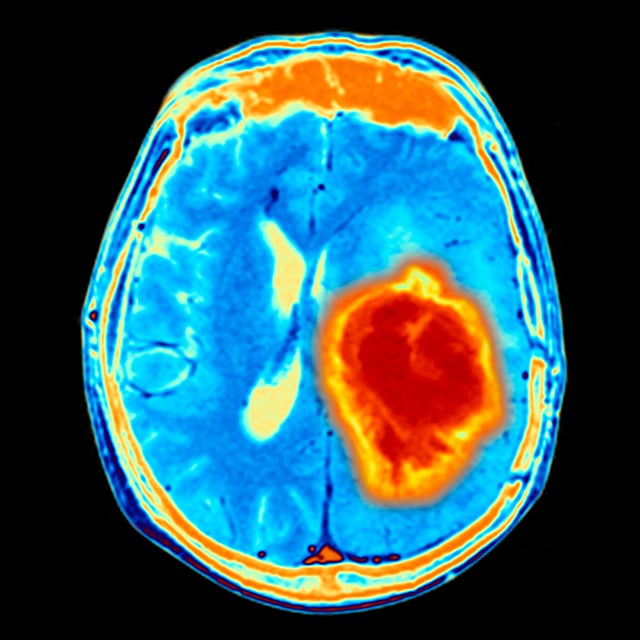
Brain Tumor Program
The Pediatric Brain Tumor Program offers advanced treatments for brain and spinal cord tumors in a supportive environment. Our goal is to cure whenever possible while providing every patient with the best possible care and quality of life. We treat kids from all over the Bay Area and beyond.
Because these patients often need many types of treatment, our program brings together a highly experienced team of experts to provide coordinated care. Pediatric neuro-oncologists (specialists in brain and spinal cancers) collaborate closely with doctors from pediatric neurosurgery, pediatric neurology, pediatric physical medicine and rehabilitation, and pediatric radiation oncology on every case to deliver an accurate diagnosis and design an effective treatment plan.
The team also includes psychologists, neuropsychologists, social workers, child life specialists and a school liaison. These experts help families navigate the challenges of treatment while looking after their child's emotional and psychological health. We work with local and national organizations to ensure patients and their families have the resources they need, including support groups.
For pediatric patients approaching age 18, we work closely with the Adolescent and Young Adult (AYA) Neuro-Oncology Clinic to ensure a seamless transition to adult care.
Highlights of the Pediatric Brain Tumor Program
We have expertise in leading-edge diagnostic methods, such as:
- Stereotactic biopsy. Compared with open surgery, this is a less invasive method for obtaining a sample of tumor tissue for microscopic analysis. The surgeon makes a small hole in the skull and, guided by imaging, uses a needle to remove some tumor cells.
- Gene sequencing. For all our patients, we use a state-of-the-art test, the UCSF500 Cancer Gene Panel, to identify mutations in the tumor's DNA. The results can allow doctors to make more accurate diagnoses and determine the best treatment course for an individual patient.
We provide innovative brain tumor treatments, including:
- Metaiodobenzylguanidine (MIBG). Only a few hospitals in California offer this drug, which targets treatment-resistant neuroblastoma.
- Convection-enhanced delivery. Researchers at UCSF helped pioneer this procedure, which uses a thin tube to administer chemotherapy drugs directly to a brain tumor, making the treatment more effective while reducing its side effects on healthy brain tissue and the rest of the body.
- MEK inhibitors. These drugs, which block the activity of certain proteins, can effectively treat neurofibromatosis type 1.
We take advantage of technologies that can optimize what a treatment achieves while minimizing its harmful side effects. Examples include:
- MRI scanning during procedures. This practice helps surgeons safely remove as much of the tumor as possible.
- Gamma Knife and CyberKnife radiosurgery. We are one of only a few centers in California to offer these advanced techniques, either of which may be an option for tumors previously considered untreatable. They allow precise delivery of high-dose radiation therapy with minimal damage to healthy tissues.
What's more, our program is committed to improving brain tumor care through research. We belong to several national alliances for brain tumor investigation, and UCSF Benioff Children's Hospitals play a leading role in the Pacific Pediatric Neuro-Oncology Consortium, which is dedicated to developing innovative treatments for these cancers. This active involvement means our patients have exceptional access to promising experimental therapies and are among the first to benefit from new scientific findings.
Your child may have the opportunity to participate in a clinical trial for a promising brain tumor treatment. Learn more about the process and potential benefits of participating in a clinical trial.
Our locations (2)
Explore what we do
Innovating care for kids with brain tumors
UCSF doctors have been pioneering a minimally invasive procedure for pediatric brain tumors that has been used for years to treat epilepsy.
Navigating brain tumor treatment with virtual reality
Our team used cutting-edge VR technology to help a patient with neurofibromatosis type 1 and her family prepare for brain surgery.
Our team
-

Sabine Mueller
MD, PhD
Pediatric Neurology, Pediatric Neuro-Oncology -

Kurtis Auguste
MD
Pediatric Neurosurgery, Neurosurgery -

Anuradha Banerjee
MD
Pediatric Hematology Oncology -

Mitchel Berger
MD
Neurosurgery, Pediatric Neurosurgery -

Steve Braunstein
MD, PhD
Radiation Oncology -

Nalin Gupta
MD, PhD
Neurosurgery -

Caroline Hastings
MD
Pediatric Hematology Oncology, Pediatric Neuro-Oncology -

Winson S. Ho
MD
Pediatric Neurosurgery -

Marie Jaeger-Krause
MD
Pediatric Hematology Oncology, Pediatric Neuro-Oncology -

Maya Lodish
MD, MS
Pediatric Endocrinology -

Brian S. Na
MD, PhD
Neuro-Oncology -

Bo Qiu
MD, PhD
-

David R. Raleigh
MD, PhD
Radiation Oncology -

Alyssa Reddy
MD
Pediatric Neurology -

Peter P. Sun
MD
Neurosurgery, Pediatric Neurosurgery -

Harish N. Vasudevan
MD, PhD
Radiation Oncology -

Shannon Lundy
PhD
Developmental-Behavioral Pediatrics, Pediatric Neuropsychology -

Carly Hoffman
NP, RN
Awards & recognition
-

Ranked among the nation's best in 11 specialties
-
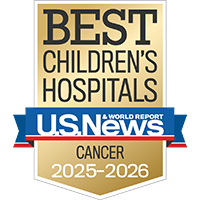
Top 10 in the nation and best in Northern California for cancer care
-
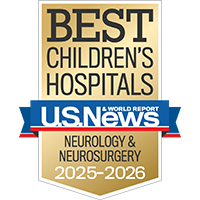
One of the nation's best for neurology & neurosurgery
-

in NIH funding among U.S. neurology programs
Plan your visit
What to Bring
- Photo I.D.
- Health insurance card
- Insurance authorization, if required
- Doctor's referral, if required
- Recent test results related to your child's condition
- List of medications, including dosages, plus any your child is allergic to
- List of questions you may have
- Device or paper for taking notes
Clinical trials
Combination ADI-PEG 20, TMZ, and RT for Treatment of Newly Diagnosed High-grade Glioma (HGG)
Proportion of participants in Phase 1 with treatment-emergent adverse events as graded by National Cancer Institute Common Terminology Criteria for Adverse Events (NCI CTCAE version 5.0) will be reported.
Recruiting
More about this studyA Study of Lower Radiotherapy Dose to Treat Children With CNS Germinoma
Will be estimated for eligible and evaluable patients assigned to Stratum 1 using Kaplan-Meier (KM) EFS estimates at 2 and 3 years with respective 80% two-sided confidence intervals. Time from initiation of radiation to the first ...
Recruiting
More about this studyDabrafenib and Trametinib for BRAF V600 Mutant Low-Grade Gliomas
The Rebound rate is defined as increase in tumor size by 25% or more by Response Assessment in Pediatric Neuro-Oncology-Low Grade Glioma (RAPNO-LGG) criteria and/or clinical progression necessitating the re-institution of therapy ...
Recruiting
More about this studyEmbryonal Tumor With Multilayered Rosettes
The median PFS6 is defined as the median number of months for participants in Cohort 1 who have remained progression-free from the date of initial surgical resection until 6 months.
Recruiting
More about this studyLiothyronine in Combination With BIT Regimen for Medulloblastoma With or Without Minimal Residu...
Proportion of participants with adverse events of L-T3 as graded by National Cancer Institute Common Terminology Criteria for Adverse Events (NCI CTCAE version 5.0)
Recruiting
More about this studyA Study of the Drugs Selumetinib vs. Carboplatin and Vincristine in Patients With Low-Grade Gli...
The Kaplan-Meier method will be used to estimate EFS which is defined as the interval from randomization to first occurrence of clinical or radiographic disease progression, disease recurrence, second malignant neoplasm, or death ...
Recruiting
More about this studyTarget Validation and Efficacy of Metformin in Patients With Posterior Fossa Group A (PFA) Epen...
Proportion of participants with a 10% reduction in Enhancer of Zeste Inhibitory Protein (EZHIP) and/or a 10% increase in the epigenetic modification to the DNA packaging protein histone H3, with tri-methylation of lysine 27 on his...
Recruiting
More about this studyA Study of a New Way to Treat Children and Young Adults With a Brain Tumor Called NGGCT
Will be measured by the number of progressions or deaths within 2 years of enrollment for the cohort treated with whole ventricular + spinal canal irradiation (WVSCI). The final analysis will include an exact binomial confidence i...
Recruiting
More about this studyGenetically Modified Cells (KIND T Cells) for the Treatment of HLA-A*0201-Positive Patients Wit...
To determine the safety and tolerability of a single intravenous (IV) infusion of KIND T cells in HLA A*0201+ participants with H3.3K27M+ diffuse midline gliomas
Recruiting
More about this studyCombination Therapy for the Treatment of Diffuse Midline Gliomas
Percentage of participants alive and free from progression at 6 months after the diagnosis. The primary analysis for PFS6 is based on the intention to treat (ITT) population, according to treatment arm assignment. PFS6 is estimate...
Recruiting
More about this studySupport services
Our research initiatives
Translation, please
We have interpreters for Cantonese, Mandarin, Spanish, Russian, American Sign Language and more.
Request an interpreter
































